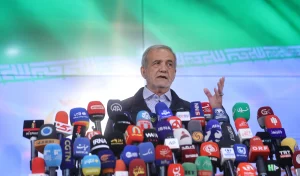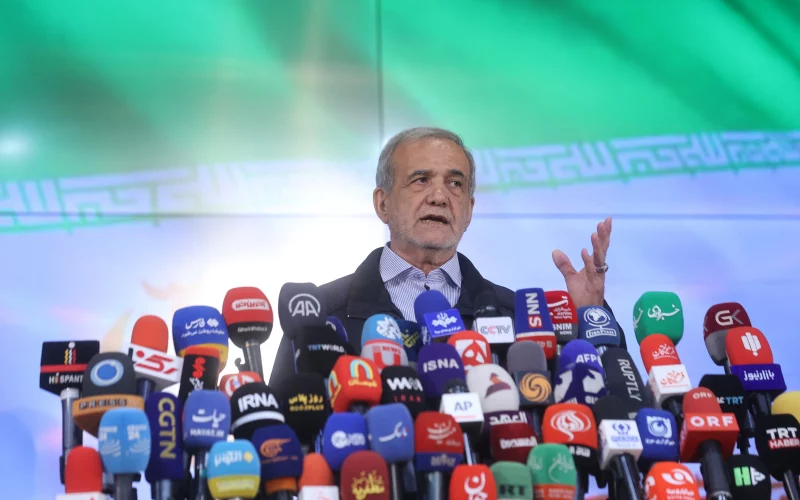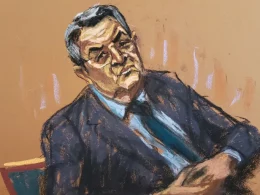The upcoming presidential election in Iran has been stirred by the emergence of a reformist candidate, Dr. Ali Pezeshkian. His candidacy has injected fresh energy into a political landscape often characterized by conservatism and continuity. In this article, we will delve into the background of Dr. Pezeshkian, analyze the implications of his candidacy on the Iranian political scene, and examine how it may influence the election outcome.
Background of Dr. Ali Pezeshkian

Dr. Ali Pezeshkian, a seasoned politician and reformist figure, hails from a background in medicine and academia. He served as the Minister of Health under former President Mohammad Khatami’s administration, where he implemented several progressive healthcare reforms. Pezeshkian’s tenure was marked by his dedication to improving public health infrastructure and expanding access to healthcare services, earning him respect among his peers and constituents.
Entry into Presidential Race
Pezeshkian’s decision to enter the presidential race came as a surprise to many observers. While he had maintained a relatively low profile in recent years, his announcement reignited interest in the reformist movement and provided a viable alternative to the incumbent government’s policies. His platform focuses on issues such as economic revitalization, social justice, and diplomatic engagement, resonating with a significant portion of the Iranian electorate disillusioned with the status quo.
Analysis of Pezeshkian’s Candidacy
Pezeshkian’s candidacy represents a departure from the traditional conservative candidates who have dominated Iranian politics in recent years. As a reformist figure with a track record of implementing progressive policies, he offers a compelling vision for the future of Iran. His emphasis on inclusivity and pragmatism has garnered support from diverse segments of society, including youth activists, women’s rights advocates, and moderate conservatives disillusioned with the current government’s approach.
Potential Challenges and Opportunities
Despite the enthusiasm surrounding Pezeshkian’s candidacy, he faces several challenges on the campaign trail. Chief among these is the entrenched power of conservative factions within the Iranian establishment, which may seek to undermine his candidacy through smear campaigns or electoral manipulation. Additionally, Pezeshkian’s relatively low visibility in recent years could pose a challenge in terms of mobilizing grassroots support and building a robust campaign infrastructure. However, these obstacles also present opportunities for Pezeshkian to demonstrate his resilience and ability to navigate the complexities of Iranian politics. By leveraging his experience and articulating a clear vision for the country’s future, he can appeal to voters disillusioned with the status quo and position himself as a credible alternative to the incumbent government.
Implications for Iran’s Future
The outcome of the presidential election will have far-reaching implications for Iran’s domestic politics and its role on the international stage. A victory for Pezeshkian would signal a shift towards a more progressive and inclusive agenda, potentially paving the way for reforms in areas such as civil liberties, human rights, and diplomatic relations. Conversely, a win for the incumbent or a conservative challenger could perpetuate the status quo, entrenching the influence of hardline factions and exacerbating tensions with the international community. Ultimately, the choice facing Iranian voters is not just about selecting a new leader but about determining the country’s trajectory for years to come. As the election unfolds, all eyes will be on Iran to see which path its people choose to follow.
Furthermore, Pezeshkian’s background in healthcare could prove to be a significant asset, particularly in the context of the ongoing COVID-19 pandemic. His experience in managing public health crises and his commitment to strengthening the healthcare system could resonate with voters concerned about the government’s response to the pandemic.
Comparative Analysis of Presidential Candidates
To better understand the dynamics of the upcoming election, let’s compare Pezeshkian with other prominent candidates:
| Candidate | Political Orientation | Key Issues | Strengths | Weaknesses |
|---|---|---|---|---|
| Dr. Ali Pezeshkian | Reformist | Economic revitalization, social justice, diplomatic engagement | Progressive track record, broad appeal across demographics | Limited visibility in recent years |
| Incumbent Candidate | Conservative | National security, economic stability | Incumbency advantage, support from conservative establishment | Perceived as out of touch with public sentiment |
| Opposition Candidate | Moderate | Political reform, civil liberties | Appeal to youth and reformist voters | Limited organizational support |
Conclusion
The emergence of Dr. Ali Pezeshkian as a reformist candidate has injected dynamism into the Iranian presidential election. His candidacy represents a departure from the status quo and offers a compelling alternative to the incumbent government’s policies. As the election unfolds, it will be crucial to monitor how Pezeshkian’s message resonates with voters and whether he can translate his vision for Iran into tangible electoral success. Regardless of the outcome, his participation has already sparked important conversations about the future direction of Iranian politics.












